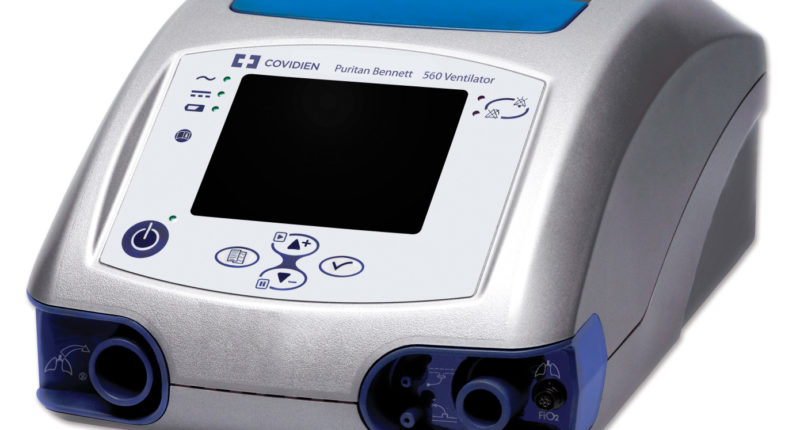Medtronic, the Dublin-based medical equipment maker which was in the news for its partnership with Tesla, has announced something even bigger today. The company said that it is publicly sharing the design specifications of the PB 560 portable ventilator. The company is making this information available in an effort to aid the evaluation of ventilator manufacturing options by entities across different industries.
While the design specifications of the device are already available, software code and other information will soon follow. Service manuals, design requirement documents, manufacturing documents and schematics can be found here. According to the company’s press release, the decision is “consistent with the recent FDA guidance and in accordance with the public health and medical response of government agencies globally.”
Ventilators are crucial in the current pandemic, as the device plays a critical role in the management of such respiratory illnesses. A ventilator allows the patient’s lungs to rest and recover while it supplies oxygen and simulates the action of breathing. The absence of a ventilator may prove fatal to a critical patient of COVID-19 in some cases.
Medtronic’s initiative is aimed at the possible production of new innovative designs of ventilators which can be produced quickly but offer similar performance characteristics. For companies not into medical equipment making, re-modelling a production line will still remain a tough task, but a blueprint will aid the process. The ultimate goal remains increased efficacy and numbers of the device which is the need of the hour. “By openly sharing the PB 650 design information, we hope to increase global production of ventilator solutions for the fight against covid-19” said Bob White, executive vice president and president of the Minimally Invasive Therapies Group at Medtronic.
The PB 560 model from Medtronic is one of the most potent and mobile ventilator options in the market right now. Introduced in 2010, the product is characterised by its ability to provide mobile respiratory support. The device is compact, lightweight and portable and is known to provide airway support to both adults and children. The company does manufacture far more complex models which require thousands of different outsourced components. And while the PB560 isn’t a simple machine in itself, its portability and relatively less complicated design makes it the right contender for design by other companies.
However, Medtronic isn’t exactly open-sourcing the design. It is providing a ‘permissive license‘ since the current pandemic is a declared emergency globally. And the term of this license will end either when the World Health Organization’s official Public Health Emergency of International Concern (PHEIC) is declared over, or on October 1, 2024, whichever comes first.
Since there is a shortage already, governments globally are now putting even non-medical companies to the task of making these life saving devices. This has led to plenty of efforts for increased production of ventilators and new designs that manufacturers of other devices can put to use. Other companies are attempting the modification of the existing hardware to serve more patients as coronavirus positives grow alarmingly across the globe.
The automotive sector in particular, has been identified by governments world over, as one that has the ability to churn ventilators in masses. And companies have responded well to the call. In the US, GM, Ford and Elon Musk’s Tesla have joined hands with multiple medical equipment makers to speed production. Tesla recently announced a partnership with Medtronic to help speed up production.
Dyson, a company known for its vacuums, has designed a new ventilator and plans on creating 5000 more for an international donation. Ford is providing technical and production efforts to make a simplified design of GE Healthcare’s ventilator. Over the past few weeks, Medtronic has also ramped up production of PB 980 ventilators. According to the company, “a global challenge needs a global response”.
In India too, auto majors such as Mahindra, Maruti Suzuki and Jaguar-owned Tata Motors have all started re-modelling their assembly lines to start producing ventilators.





